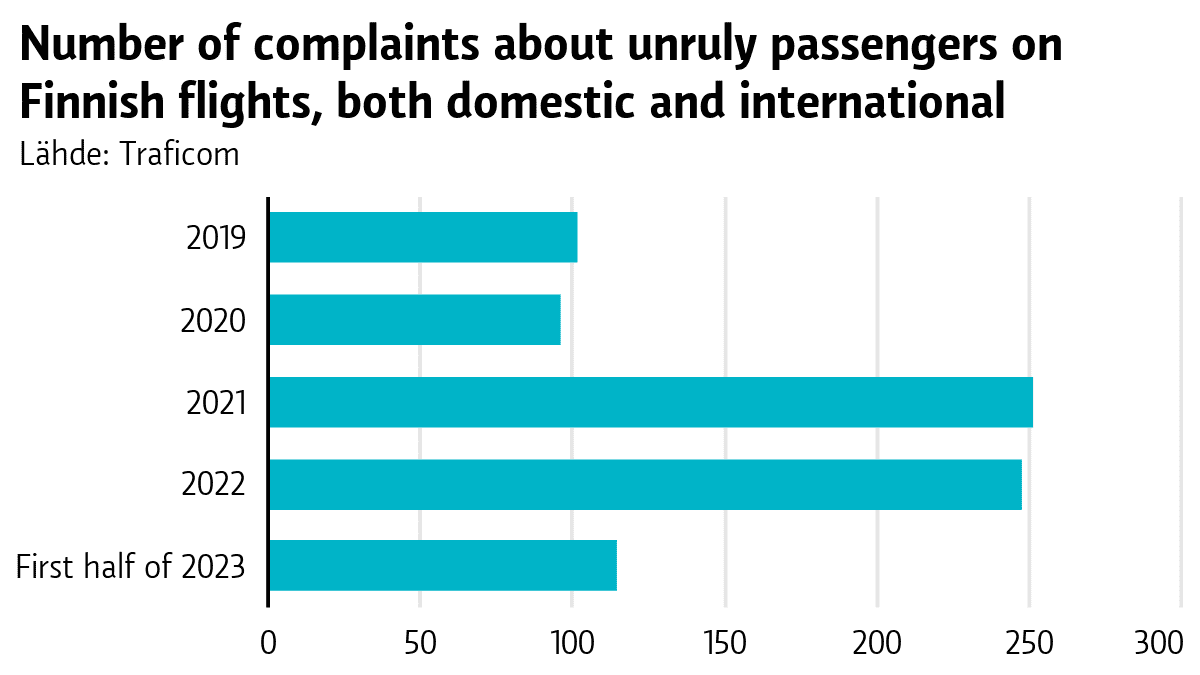The most common types of disruptions include verbal harassment, intoxication and smoking.

The number of complaints about unruly air passengers has increased over the past few years, and the trend appears to be continuing.
According to data from the Finnish Transport and Communications Agency (Traficom), disruptive behaviours in air travel include making jokes about bombs, being intoxicated or testing airplane smoke alarms, among other things.
Traficom noted that such behaviour can be expensive and possibly carry long-term consequences.
In 2021, there were 251 reports filed in Finland about passengers’ disruptive behaviour on domestic flights and abroad. That figure is two-and-a-half times more than it was in the previous couple of years. Since then, the number of reports has remained relatively high.

The most common types of disruptions included verbal harassment, intoxication and smoking.
The second most common rule breaches were passengers not following flight staff orders or safety regulations, for example refusing to wear a seat belt.
Traficom said that the incidents can also pose a risk to everyone onboard. Some of those behaviours can also result in having to pay compensation to other passengers.
The payments can reach into the tens of thousands of euros, according to Traficom’s air travel director, Jari Pöntinen.
“People who behave badly on planes are rarely aware of how expensive it can be if the behaviour, for example, leads to a flight being delayed,” he said.
In the most extreme cases, disruptive passengers can face legal consequences including fines or even imprisonment.
Pöntinen noted that disruptive behaviour on airlines has increased in other parts of the world too, but the reasons why are unclear.
Users with an Yle ID can leave comments on our news stories. You can create your Yle ID via this link. Our guidelines on commenting and moderation are explained in this article. You can comment on this article until 23:00 on 14 October.

